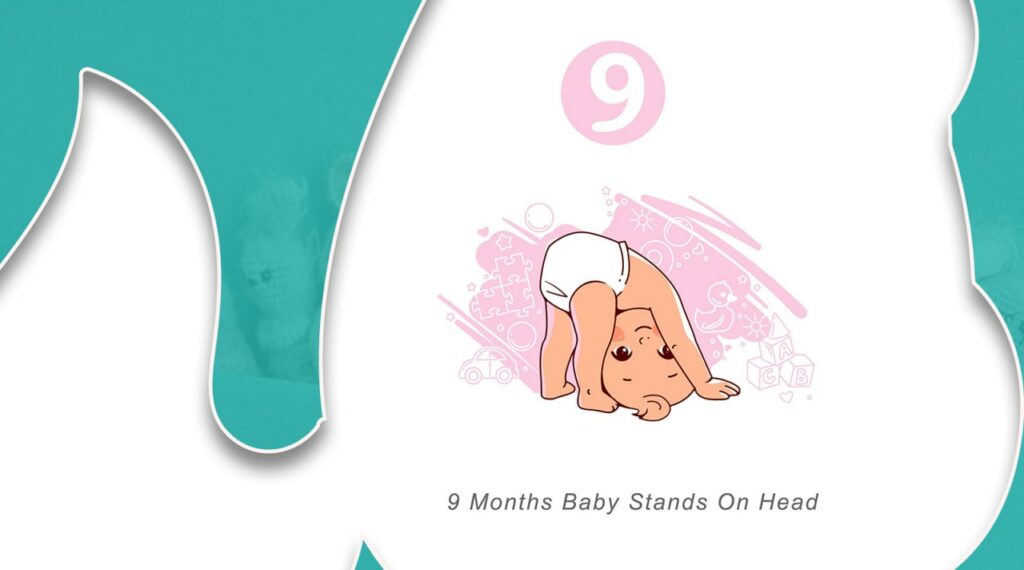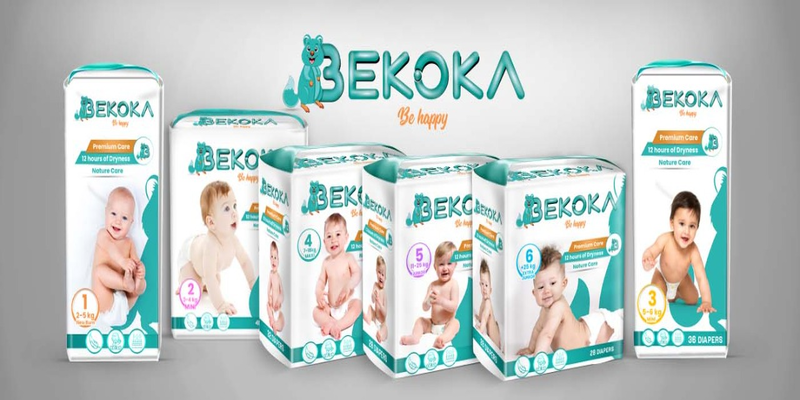Looking at what your nine-month-old baby has achieved, the life of a baby in the ninth month is an extension of the magical train of adventures.
Your baby is now crawling, clapping his hands, and trying to stand up. It is important during this period to follow your baby as he tries to explore the environment around him, as your baby may use furniture and other objects to support him as he moves around the house. Keep an eye on your little one as much as possible because he is fast and can stumble easily.
Some mothers feel very relieved that their nine-month-old baby has reached this stage, but there are still questions about this new stage of the baby’s life. Dear mother, you may wonder if your baby has reached the stages of baby development in the ninth month. So what are the forms of development of this stage? Is it normal for a child at the age of nine months to not have teeth? What if he doesn’t sleep all night? All these questions and more will be answered in this article according to the latest follow-ups and reliable statistics from various health authorities around the world.
According to the World Health Organization, babies grow at a constant rate of 1.5-2.5 cm per month, taking into account the difference in sex, as the ideal weight and height for girls differ from boys. The average length of the baby in the ninth month is between 66 to 76 cm, while the average weight ranges between 7.3 to 11.2 kg.

What distinguishes a nine-month-old baby’s life?
- Crawling: Nine months is the average age for babies to start crawling, your baby may already be crawling. You have to realize, that there is no reason to break even if your baby does not crawl yet as long as his growth is healthy and beneath the care of a specialist doctor. There are many pediatricians who have reported that some healthy and well-developed babies do not crawl but walk immediately!
- Standing: nine-month-old baby becomes able to stick to the sofa or table and is self-reliant to stand. Then comes the stage of walking around the house on the treadmill or with the support of household furniture such as a chair.
- Sitting: One of the most enjoyable things for a baby in the ninth month is sitting for long periods and playing with toys and figures. He seems to have relied on his own hands for his own amusement.
- Grasping things tightly: nine-month-old baby’s hands are getting stronger and are able to pick up things using his index finger and thumb. This ability is evident when feeding and playing.
- Chatter: Most nine-month-old babies make sounds like mama and papa that they might even use to describe their parents. First, the chatter starts, and then gradually your baby becomes able to talk.
- Teeth Emergence: You may be wondering how many teeth appear in your baby’s mouth in the ninth month! It depends on the structure of the baby’s body. The upper and lower incisors usually appear in babies at this age, but there are a few babies who do not yet have teeth. You can expect teeth to appear as follows:
- Lower central incisor: 6 to 10 months
- Inferior lateral incisor: 10 to 16 months
- Upper central incisor: 8 to 12 months
- Upper lateral incisor: 9 to 13 months
- The ability to respond to simple commands: After the baby’s brain has become more complex, your nine-month-old baby can now carry out your simple commands from one step, for example, “give me the cup” and point with your hand, then it is natural for him to respond to you either with rejection or acceptance. On the other hand, your baby will be able to signal desires in ways other than crying.
Your nine-month-old baby sleeping
At this age, your baby usually sleeps about 14 hours a day, including 11 hours at night, and two naps a day are between three and four hours a day.
What if your baby at this age does not sleep through the night?
According to many mothers, about 70 percent of nine-month-old babies sleep 8 to 12 hours a night without waking. But don’t let the fact that your baby is not like other babies worry you, babies don’t sleep through the night, even if you want to!
If you think your baby needs to sleep for longer periods, you should establish a bedtime routine. Try to make the time before bed quiet so you put your baby on your lap and tell him stories and talk to him, also a bath before bed helps your baby. With time, your baby will get used to his routine and sleep about 10 to 12 hours a night.
What if your nine-month-old baby does not sleep at night?
Decreased sleep is common among 9-month-olds. It’s because your baby is learning new skills, like crawling, standing, and trying to walk, so he’s always eager to explore more and more adventures even if it’s in the middle of the night.
What does your nine-month-old baby eat?
In this month, the baby begins to feel hungry and tends to eat different foods, while breastfeeding becomes just entertainment for some babies, and on the contrary, there are those who adhere to breastfeeding and refuse food. It should be noted that a baby in the ninth month needs approximately 750 to 900 calories per day with about 400 to 500 calories from breast milk or formula.
Dear mother, focus on providing nutritious foods to your baby and do not force him to eat. He will definitely eat when he is hungry. Offer your baby cooked, soft vegetables cut into small pieces, or cut bananas, avocados, or small cooked pasta. It is best for a nine-month-old baby to eat three to four meals a day. And make sure, dear mother, that you get your baby used to eat from the family food.
When can you worry about your nine-month-old baby and should you tell the doctor?
At the age of 9 months, the baby has an examination with the pediatrician, where the specialist measures his weight, height, and head circumference. A physical examination is also performed to ensure that he is growing properly. He also undergoes a blood test to check the amount of iron and whether the baby suffers from anemia or not.
If your baby has specific concerns or questions about your nine-month-old baby’s health and development, don’t hesitate to tell the pediatrician. There are some things that you need to tell your baby’s pediatrician:
- Your baby does not stand on his feet when you hold him upright and place him on a surface.
- He is unable to sit, whether he is supported and resting on things around him or on his own.
- Does not make chatter sounds and does not pronounce some comprehensible and incomprehensible letters, i.e. does not speak.
- He is not attracted by toys with wheels that move back and forth.
- He doesn’t respond when someone calls him by his name.
- He does not recognize familiar people around him.
- He does not look where you point your finger or wave your hand at him.
- He does not pass toys from one hand to the other.
Dear mother it is important to remember that a nine-month-old baby is growing at its own pace, so do not compare it with other babies. With each passing day, your baby will continue to surprise you with his growth, development, and intelligence.


